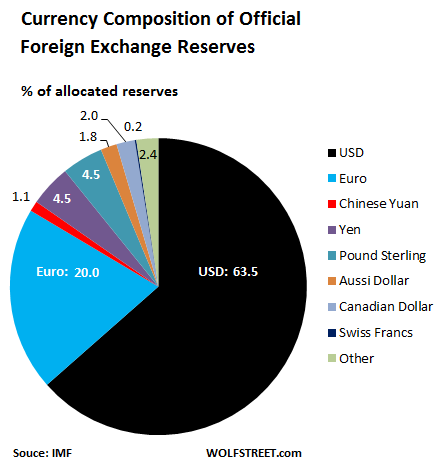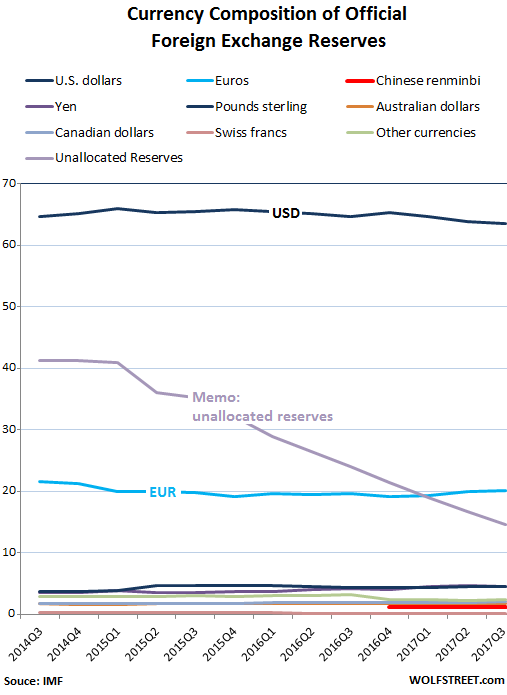
Paul Gauguin Road in Tahiti 1891

“..over half of all personal income taxes will be required just to service the national debt.”
• Beware of the Coming Economic Debt Bomb (Tanous)
In 2009, the year President Obama took office, the national debt held by the public was $7.27 trillion. At the end of fiscal 2016, that had soared to approximately $14 trillion. Given that our marketable debt doubled from 2009 to 2016, it’s remarkable that the annual cost of the interest on the debt rose far less, from $185 billion to $223 billion. The long march of rising rates that began recently is a dramatic reversal after nearly 40-years of declining interest rates. The new trend portends a return to more historic rates. You may be asking: what are the historic rates? We calculate that the average rate paid on the federal debt over the last 30 years was close to 5%. The Congressional Budget Office (CBO) has just raised its estimate that debt held by the public will rise to $17.8 trillion in 2020.
Some economists believe that the figure will be much higher. For our exercise though, let’s stick with the CBO estimate. We are postulating that the interest rate on our national debt may return to the long-term, 30-year average of 5%. Note, too, that Treasury debt rolls over every 3 to 4 years so the maturing bonds at low interest rates will be refinanced at the then current higher rates. Let’s do the math together. Take the CBO estimate of debt held by the public of $17.8 trillion in 2020, a 5% average interest on that amount comes to annual debt service of $891 billion, an unfathomable amount. (In 2017, interest on the debt held by the public was $458.5 billion, itself a scary number.)
In its current report, the CBO added: “It also reflects significant growth in interest costs, which are projected to grow more quickly than any other major component of the budget.” Here’s the danger: • According to CBO, individual income taxes produced $1.6 trillion in revenue in fiscal year 2017. • Under this 2020 scenario, over half of all personal income taxes will be required just to service the national debt. • Annual debt service in 2020 will exceed our newly increased defense budget of $700 billion in FY 2018. • Annual debt service would exceed our Social Security obligations.

[The IMF] “..admitted shortly after the intervention that its support to keep the peso’s peg against the dollar prolonged the crisis in the country.”
• Argentina Looks To Be Headed For Another Economic Storm (CNBC)
Argentina has started talks with the IMF seeking financial rescue once again, as inflation soars and the currency sinks. Buenos Aires looks to be going through another economic nightmare, with prices rising rapidly while the Argentine peso drops. The central bank announced last week another increase in rates to 40% — as the 12-month inflation rate hit 25.4%, above its 15% target. At the same time, since the start of the year, the peso is down by more than 20% against the U.S. dollar. [..] Asking for help from the Fund is a contentious issue for the country. Back in 2001, Argentina defaulted on $132 billion of foreign debt. The Washington-based institution, which was helping the country at the time, admitted shortly after the intervention that its support to keep the peso’s peg against the dollar prolonged the crisis in the country.
Following Macri’s announcement Tuesday, several people protested against a new IMF intervention, still traumatized by the economic collapse at the start of the century, Reuters reported. “The IMF has a terrible reputation among Argentinians, and so this is a big political gamble for the government,” Fiona Mackie, regional director for Latin America at the Economist Intelligence Unit, told CNBC via email. “At present, though, (the government) clearly sees the need to regain the confidence of markets as more pressing, and is hoping that its program of adjustment gets back on track in time for the presidential election late next year,” she added.

“The Germans are right. Ever-rising house prices are a curse. They are bad for social mobility. They are bad for young people. And they are bad for the economy. ”
• At Last, A Reason To Celebrate: House Prices Are Falling (G.)
The housing market is dead. Britain’s biggest mortgage lender, the Halifax, says that prices fell in April by 3.1%, the biggest monthly drop in almost eight years. Newspapers bury this disastrous news way back in their editions for fear that it will spread gloom and despondency. We need to wean ourselves off this way of thinking. Falling house prices are not disastrous, and only in a country with such a perverted relationship with bricks and mortar could they be seen as such. In Germany, they scratch their heads in bemusement when they hear Britons boast of how the value of their house has soared. The Germans are right. Ever-rising house prices are a curse. They are bad for social mobility. They are bad for young people. And they are bad for the economy.
The billions that are spent pushing up property prices could be more productively invested elsewhere. Imagine for a second that the next time you went to the train station the rail operating company had unexpectedly cut fares by 5%. Or that when doing your weekly shop you discovered that the supermarket had slashed your normal bill by £10. Would you think this was an unwelcome development? Daft question. Of course you would be happy, because your money would go further. Conversely, you would be less than chuffed to find more of your pay being spent on getting to work or putting food on the table. That’s why there are no headlines in the papers screaming “Boom-boom Britain: joy for commuters as rail fares rise by 10% for third year in a row”, or “Good news for families as supermarkets add £10 a week to the average shop”.
The papers stand up for their readers when they think they are being gouged by train companies and supermarkets. They stick up for buyers rather than sellers. But different rules apply to property. If the average house price had risen rather than fallen by £7,000 in April, that would have been front-page news and hailed as a sign that all was well with the economy. The papers tend to side with owner-occupiers rather than the buyers of property getting the rough end of the deal. This fetishisation of rising house prices is relatively recent. For the first 25 years after the second world war, a combination of mass housebuilding and strict controls on credit meant that the cost of property rose only modestly.
But since 1970, financial deregulation, much lower levels of housebuilding and a tax system heavily weighted in favour of owner-occupation have meant demand for housing in parts of the country has tended to outstrip supply. There have been four big house-price booms – the early 1970s, the late 80s, the mid 00s and the mid 10s. None of them have ended well.

No criminal charges.
• RBS Reaches $4.9 Billion Deal To Settle US Mortgage Bond Probe (R.)
The British state-backed bank said that $3.46 billion of the proposed civil settlement will be covered by existing provisions and the bank will take a $1.44 billion incremental charge in 2018’s second quarter to cover the rest. The accord would resolve a major issue that has weighed on the company’s share price and complicated the UK government’s plan to sell down its more than 70 percent stake in the bank. RBS Chief Executive Ross McEwan called the deal a “milestone.” “Removing the uncertainty over the scale of this settlement means that the investment case for this bank is much clearer,” he said in a statement.
The U.S. Attorney’s Office in Massachusetts, which led the probe, confirmed it had reached an agreement in principle with RBS that would resolve potential civil claims related to mortgage-backed securities that were issued from 2005 to 2008. “Further details remain to be negotiated, however, before a formal agreement can be reached,” the office said. The implosion of markets for risky residential mortgage-backed securities and related derivatives contributed to the 2008 global financial crisis and prompted a series of investigations by authorities including the Justice Department. The U.S. Attorney’s Office in Massachusetts had also been conducting a criminal investigation into RBS and former employees who were involved in structuring and selling the securities.
But the settlement that RBS and the office disclosed on Thursday was only civil in nature, signaling no criminal charges were likely to result. RBS previously agreed in July 2017 to pay $5.5 billion to resolve a lawsuit by the Federal Housing Finance Agency, the conservator for Fannie Mae and Freddie Mac, claiming it misled the U.S. mortgage giants into buying mortgage-backed securities. It resolved similar claims by the National Credit Union Administration related to mortgage-backed securities RBS sold to credit unions that later failed for $1.1 billion in 2016.

“The mere threat of a military attack from the White House is madness because it arises from blatant lies that have absolutely nothing to do with US national security..”
• The Deep State First (Stockman)
At his so-called Cabinet meeting this morning, the Donald basically threatened Iran with annihilation if it does what 15 other signatories to the nuclear non-proliferation treaty (NPT) do every day: Namely, increase production of industrial grade nuclear fuel (3.5%-5.0% purity) at its enrichment plant at Natanz—which, in any event, is crawling with IAEA inspectors. Moreover, it really doesn’t matter whether Trump was play-acting in the style of Art of the Deal or that the JPAOC could be improved. The mere threat of a military attack from the White House is madness because it arises from blatant lies that have absolutely nothing to do with US national security. Nor, for that matter, the security of any other country in the region, including Saudi Arabia and Israel.
The real purpose of the Donald’s missile-rattling is nothing more than helping Bibi Netanyahu keep his coalition of right wing religious and settler parties (Likud, United Torah Judaism, Shas, Kulanu and the Jewish Home) together, thereby maintaining his slim 61-vote majority in the 120-seat Knesset. Netanyahu’s malefic political glue is the utterly false claim that Iran is an “existential threat” to Israel because it is hell-bent on getting the bomb. But that’s where the whopper comes in. It amounts to the ridiculous postulate that Iran is so fiendishly evil that if it is involved in the nuclear fuel cycle in any way, shape or form – presumably even just operating a uranium mine – it is only a matter of months before it will have a bomb.
As a matter of record, of course, Netanyahu has been saying this since the early 1990s and he has always been wrong because there were never any facts or logic to support his blatant fear-mongering.

Madman,
• Turkey Detains Dozens Of Air Force Personnel Over Gulen Links (R.)
Turkish police detained 65 suspects on Thursday in an operation targeting air force personnel accused of links to the U.S.-based preacher whom Ankara says orchestrated an attempted coup in 2016, state-run Anadolu news agency said. Prosecutors issued arrest warrants for a total 96 people, of which 91 were from the air force, and police were still seeking the remaining suspects in an operation focused on the western city of Izmir and spread across 15 provinces, it said. The suspects were said to have ties to the cleric Fethullah Gulen, whose network is accused of being behind the failed putsch in July 2016, during which 250 people were killed. Gulen has denied involvement.
In a separate operation, an Ankara prosecutor on Thursday issued detention warrants for 93 employees of a private tutoring center that was previously closed down on suspicion of links to Gulen’s network, Anadolu said. Turkish authorities have detained 160,000 people and dismissed nearly the same number of civil servants since the failed military intervention, the U.N. human rights office said in March. Among those detained, more than 50,000 have been formally charged and kept in jail during their trials.

Hmmm…
• Did Putin Green-Light Tonight’s Massive Israeli Strikes On Syria? (ZH)
Just off a 10-hour visit with Russian President Vladimir Putin in Moscow, and less than a day after Trump pulled out of the Iran nuclear deal, Israeli Prime Minister Benjamin Netanyahu said on Wednesday he doesn’t expect Russia to act against Israeli forces as they continue exchanging fire with Syria. It appears the meeting wrapped up at the very moments a major escalation began along the Golan Heights, with both Syria and Israel trading blame for an initial attack which quickly escalated into Israeli cruise missile launches and shelling on targets in southern Syria and notably, on Damascus itself. The question remains, did Putin give Netanyahu the green light for tonight’s events?
If it wasn’t clear over the past weeks and months of unprovoked Israeli strikes on Syria—ostensibly to roll back Iranian troop presence—then it should be very clear by now that Syria, Israel, and Iran are now in a state of war and all signs point to a continued intensification of the conflict. And crucially, there’s currently no sign that Russia came to the aid of its close ally as rockets rained down on Damascus overnight. Russia has routinely looked the other way while Israel has conducted, by its own admission, over one hundred major strikes on Syria—most of which have come after Russian intervention on behalf of Assad in 2015. As Reuters reported late in the day Wednesday, Netanyahu told reporters just before departing Moscow: “Given what is happening in Syria at this very moment, there is a need to ensure the continuation of military coordination between the Russian military and the Israel Defence Forces.”
The Russians and Israelis coordinate their actions through a direct military hotline intended to avoid accidental clashes which could lead to escalation between the two countries. A reportedly “upbeat” Netanyahu further said, “”In previous meetings, given statements that were putatively attributed to – or were made by – the Russian side, it was meant to have limited our freedom of action or harm other interests and that didn’t happen, and I have no basis to think that this time will be different.” Thus it appears Israel may have been given a green light by Putin to engage targets in Syria, however, at this point it is unclear what limitations or restrictions Putin may have issued, if any at all.

Victory.
• Trump Welcomes Home Three Americans Released By North Korea (G.)
Three Americans released by North Korea have landed in the US under cover of darkness, with Donald Trump waiting on the tarmac to greet their plane. The three men emerged from a US government plane, flashing peace signs high above their heads. A huge US flag hung between two fire trucks served as a backdrop against the night sky. “I want to thank Kim Jong-un,” Trump said. “I think he wants to do something and bring that country into the real world.” “We didn’t think this was going to happen, and it did. It was very important to all of us,” he said, referring to the prisoner release. “The true honour will be if we have a victory in getting rid of nuclear weapons.” The US secretary of state, Mike Pompeo, flew to Pyongyang for a surprise one-day visit on Wednesday, when he met the North Korean leader and secured the release of the three men.

What do Democrats stand for?
• Democrats’ Lead Is Slipping In Generic Ballot Poll (Hill)
The lead held by Democrats over Republicans on generic ballot polls ahead of the 2018 midterm elections is beginning to slip, a new CNN poll suggests. Overall, 31% of respondents in a poll released Wednesday told CNN that they believe the country would be better off with Democrats in control of Congress, while 30% said Republicans should hold the reins. However, the largest proportion of respondents, at 34%, said it makes no difference to them who is in charge. Among registered voters asked whether they would vote Democratic or Republican in their congressional district if the elections were held today, Democrats had a three-point advantage, at 44% to 41%, which is within the poll’s margin of error.
Democrats have seen a steady decline in their advantage over Republicans in recent months, according to CNN polling, falling from a 16-point advantage in February to a 6-point one in March, to just a 3-point lead this week, roughly six months away from the midterm elections. An ABC News/Washington Post poll similarly found last month that Democrats’ lead over Republicans among registered voters was only 4 points, at 47% to 43%, down from a 12-point lead the poll found Democrats held in January. Democrats still have an edge in enthusiasm, according to CNN. Among respondents who said they are excited to vote in November, more plan to vote Democratic than Republican, at 53% to 41%.
But enthusiasm does seem to be growing among GOP voters. According to the CNN poll, 44% of Republican and Republican-leaning registered voters said they were “very enthusiastic” about voting, which is a jump from 36% in March. [..] President Trump’s own job approval has increased recently, with his approval rating at 41% in the CNN poll and his approval over his handling of the economy at 52%.

On Polanyi.
• Is Capitalism a Threat to Democracy?
In a sweeping, angry new book, “Can Democracy Survive Global Capitalism?” (Norton), the journalist, editor, and Brandeis professor Robert Kuttner champions Polanyi as a neglected prophet. Like Polanyi, he believes that free markets can be crueller than citizens will tolerate, inflicting a distress that he thinks is making us newly vulnerable to the fascist solution. In Kuttner’s description, however, today’s political impasse is different from that of the nineteen-thirties. It is being caused not by a stalemate between leftist governments and a reactionary business sector but by leftists in government who have reneged on their principles.
Since the demise of the Soviet Union, Kuttner contends, America’s Democrats, Britain’s Labour Party, and many of Europe’s social democrats have consistently tacked rightward, relinquishing concern for ordinary workers and embracing the power of markets; they have sided with corporations and investors so many times that, by now, workers no longer feel represented by them. When strongmen arrived promising jobs and a shared sense of purpose, working-class voters were ready for the message.
[..] Polanyi starts “The Great Transformation” by giving capitalism its due. For all but eighteen months of the century prior to the First World War, he writes, a web of international trade and investment kept peace among Europe’s great powers. Money crossed borders easily, thanks to the gold standard, a promise by each nation’s central bank to sell gold at a fixed price in its own currency. This both harmonized trade between countries and stabilized relative currency values. If a nation started to sell more goods than it bought, gold streamed in, expanding the money supply, heating up the economy, and raising prices high enough to discourage foreign buyers—at which point, in a correction so smooth it almost seemed natural, exports sank back down to pre-boom levels.
The trouble was that the system could be gratuitously cruel. If a country went into a recession or its currency weakened, the only remedy was to attract foreign money by forcing prices down, cutting government spending, or raising interest rates—which, in effect, meant throwing people out of work. “No private suffering, no restriction of sovereignty, was deemed too great a sacrifice for the recovery of monetary integrity,” Polanyi wrote. The system was sustainable politically only as long as those whose lives it ruined didn’t have a say. But, in the late nineteenth and early twentieth centuries, the right to vote spread. In the twenties and thirties, governments began trying to protect citizens’ jobs from shifts in international prices by raising tariffs, so that, in the system’s final years, it hardened national borders instead of opening them, and engendered what Polanyi called a “new crustacean type of nation,” which turned away from international trade, making first one world war, and then another, inevitable.

More Graeber. Most jobs are bullshit.
• Bullshit Jobs: Why They Exist And Why You Might Have One (Vox)
Corporate lawyers. Most corporate lawyers secretly believe that if there were no longer any corporate lawyers, the world would probably be a better place. The same is true of public relations consultants, telemarketers, brand managers, and countless administrative specialists who are paid to sit around, answer phones, and pretend to be useful. A lot of bullshit jobs are just manufactured middle-management positions with no real utility in the world, but they exist anyway in order to justify the careers of the people performing them. But if they went away tomorrow, it would make no difference at all. And that’s how you know a job is bullshit: If we suddenly eliminated teachers or garbage collectors or construction workers or law enforcement or whatever, it would really matter. We’d notice the absence.
But if bullshit jobs go away, we’re no worse off. [..] We’re all taught that people want something for nothing, which makes it easy to shame poor people and denigrate the welfare system, because everyone is lazy at heart and just wants to mooch off other people. But the truth is that a lot of people are being handed a lot of money to do nothing. This is true for most of these middle-management positions I’m talking about, and the people doing these jobs are completely unhappy because they know their work is bullshit. I think most people really do want to believe that they’re contributing to the world in some way, and if you deny that to them, they go crazy or become quietly miserable.
[..] You expect this outcome with a Soviet-style system, where you have to have full employment so you make up jobs whether a need exists or not. But this shouldn’t happen in a free market system. I think one of the reasons is there’s huge political pressure to create jobs coming from all directions. We accept the idea that rich people are job creators, and the more jobs we have, the better. It doesn’t matter if those jobs do something useful; we just assume that more jobs is better no matter what. We’ve created a whole class of flunkies that essentially exist to improve the lives of actual rich people. Rich people throw money at people who are paid to sit around, add to their glory, and learn to see the world from the perspective of the executive class.











